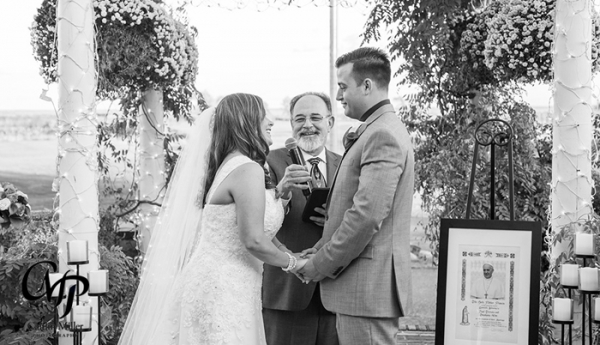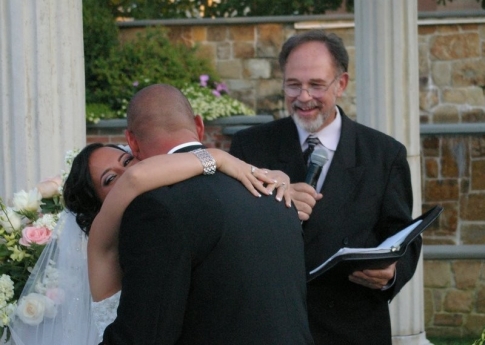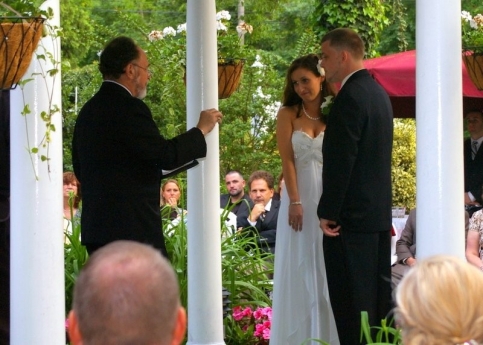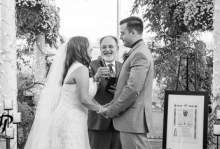-
5 out of 5 by Lauren
Larry was great, he always made us feel comfortable and tailored our ceremony to our needs. Highly recommended!
-
5 out of 5 by E
Larry was so easy going and accommodating when it came to arranging our vow renewal ceremony. He agreed to perform the same vows we took when we eloped but with his own personal style. My family asked me afterwards how I found him They were really impressed with Larry and thought he was funny. One person even asked me if he was available to perform and tell jokes at her local synagogue.
-
5 out of 5 by Antonietta
We are extremely happy with our decision to use Larry! From the moment we met with him, he was very patient and went over every detail with us. He made the process extremely easy and stress free. He arranged everything with our vendor and organized everything the day of. The ceremony was perfect! He really created the relaxed atmosphere we wanted and put all of our concerns at ease. Our guests really appreciated his sense of humor as well. I highly recommend Larry!!
-
5 out of 5 by Ria Lynne
Larry was amazing! From the first day we met him to the day of the wedding. Planning how the ceremony would go was simple, and he had special touches that we could add to our ceremony to make it more personal. We chose to go with the rose ceremony. He also was able to add our special filipino tradition we wanted into the ceremony, he even researched it. He was there for our rehearsal dinner to guide us. Our ceremony was beautiful and filled with laughs. We would highly recommend Larry to any couple!
-
5 out of 5 by Linda
Larry was a superb officiant. He arrived on time and had a calming influence over the wedding party. He was able to keep the ceremony very personalized and light- hearted just what we asked for. Many of the guests remarked how much they enjoyed the ceremony and all of the special touches. Thanks again Larry for making our wedding so memorable.
X
Sign In
Sign in with Social Networking
By Signing in with Facebook or Google, You accept LIWedding Terms of use and Privacy Policy




















